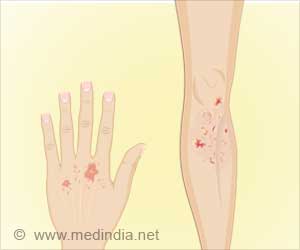In yet another instance of hyperthermia tragedy, two children left behind in a hot car, though with fans, food and drinks, die. Mother is arrested.
Only a few days ago it was reported that since the mid-1990s, the number of children who died of heat exhaustion while trapped inside vehicles was rising in the US.
And now comes the news that a South Carolina single mother, Sametta Hevward has lost her two children to hyperthermia and she is being charged with child abuse.She had a double shift duty at a county-run group home on July 29, a typically warm summer day. Her baby sitter did not turn up, but Hevward could not afford to keep away from work. Otherwise she would lose her job, she was told bluntly.
So she made it to her job leaving her 1-year-old daughter and 4-year-old son in her Chevy Cavalier hatchback, parked on a residential street. (Hatchback is a kind of small car).
She remembered to leave food and drinks for the children and also switched on battery-powered fans.
Eight hours later she told her employers of the children she had left behind and went running to them.
It was an average summer day by local standards: 88 degrees.
Advertisement
"If it's in direct sunlight, you can easily get temperatures of 130 or 140 degrees in a car in 10 or 15 minutes," said Dr. Keith Borg, an emergency room physician at the Medical University of South Carolina. "At that kind of temperature, it could kill an infant or a small child in minutes."
Advertisement
She also tried to kick and bite them and asked them to kill her. The bodies of the children, bathed and dressed, were found wrapped in trash bags and stuffed under the sink.
Lab tests are pending that could help determine whether the children died in the stifling car or sometime after their mother rushed their limp bodies back home.
She later told relatives that when she got to the car at 11:30 p.m., the children were unconscious and had weak pulses, it is said.
A host of other questions remain unanswered: Why didn't she take the children inside the group home? Did she ever check on them? Why didn't she tell her supervisor that the baby sitter had canceled? If the children were alive when she got to them, why didn't she seek medical help?
People who know her say they considered her a loving mother, despite a life that turned tough long before she moved into the 252-square-foot efficiency apartment.
An efficiency apartment is a small apartment with a bathroom and kitchenette and comes on a relatively cheap rent.
"She and her kids were always happy, smiling and joking," said Tony Smith, who lived a few doors down and often shared meals with the family.
Smith's wife, Sheryce Robertson, would sometimes baby-sit, but Robertson was sick when Heyward asked her to care for the kids that Sunday.
Her friends and her bosses -- and even the officers who arrested her -- say Heyward had been trying her best: working long hours and providing for her children.
In May, she and her children had moved into the $185-a-week apartment in Hanahan, a bedroom community of about 14,000 people some 15 miles from Charleston. She told the apartment complex manager they wouldn't be there long, that she was already looking for another place.
She had been arrested twice in the past three years, but she was not prosecuted on a charge of hindering an officer and was found not guilty of first-degree criminal domestic violence in February 2006.
A few months before the move, she put a newborn up for adoption. A 12-year-old son lives with his father in Maryland.
If those things affected her, it didn't show on the job. In a recent statement, the Disabilities Board of Charleston County said Heyward "was a valued employee who received good evaluations of her work" and was well-regarded by staff and clients.
Her lawyer, Andy Savage, said he hopes a mental evaluation will shed light on what happened.
Source-Medindia
GPL/B







